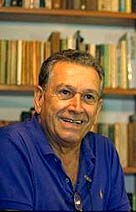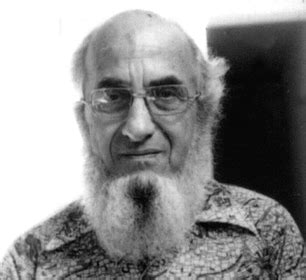A Quote by Lloyd Alexander
Morgant?" Taran asked, turning a puzzled glance to Gwydion. "How can there be honor for such a man?" "It is easy to judge evil unmixed," replied Gwydion. "But, alas, in most of us good and bad are closely woven as the threads on a loom; greater wisdom than mine is needed for the judging.
Related Quotes
Evil conquered?' said Gwydion. 'You have learned much, but learn this last and hardest of lessons. You have conquered only the enchantments of evil. That was the easiest of your tasks, only a beginning, not an ending. Do you believe evil itself to be so quickly overcome? Not so long as men still hate and slay each other, when greed and anger goad them. Against these even a flaming sword cannot prevail, but only that portion of good in all men's hearts whose flame can never be quenched.
Suspending moral judgment is not the immorality of the novel; it is its morality. The morality that stands against the ineradicable human habit of judging instantly, ceaselessly, and everyone; of judging before, and in the absence of, understanding. From the viewpoint of the novel's wisdom, that fervid readiness to judge is the most detestable stupidity, the most pernicious evil.
One day Mara, the Buddhist god of ignorance and evil, was traveling through the villages of India with his attendants. He saw a man doing walking meditation whose face was lit up in wonder. The man had just discovered something on the ground in front of him. Mara's attendants asked what that was and Mara replied, "A piece of truth." "Doesn't this bother you when someone finds a piece of the truth, O evil one?" his attendants asked. "No," Mara replied. "Right after this they usually make a belief out of it."
Like Muslims we assume that God will judge us "on balance." If our good deeds outweigh our bad deeds, we will arrive safely in heaven. But, alas, if our evil deeds outweigh our good ones, we will suffer the wrath of God in hell. We may be "marred" by sin but in no wise devastated by it. We still have the ability to balance our sins with our own righteousness. This is the most monstrous lie of all.
In the twentieth century, men -- all of us -- find themselves compelled to commit or condone evil for the sake of preventing an evil believed to be greater. And the tragedy is that we do not know whether the evil we condone will not in the end be greater than the evil we seek to avert-- or be identified with.
How often the priest had heard the same confession--Man was so limited: he hadn't even the ingenuity to invent a new vice: the animals knew as much. It was for this world that Christ had died: the more evil you saw and heard about you, the greater the glory lay around the death; it was too easy to die for what was good or beautiful, for home or children or civilization--it needed a God to die for the half-hearted and the corrupt.
Christmas reminds us we are not alone. We are not unrelated atoms, jouncing and ricocheting amid aliens, but are a part of something, which holds and sustains us. As we struggle with shopping lists and invitations, compounded by December's bad weather, it is good to be reminded that there are people in our lives who are worth this aggravation, and people to whom we are worth the same. Christmas shows us the ties that bind us together, threads of love and caring, woven in the simplest and strongest way within the family.
Accustom yourself to submit on all and every occasion, and on the most minute, no less than on the most important circumstances of life, to a small present evil, to obtain a greater distant good. This will give decision, tone, and energy to the mind, which, thus disciplined, will often reap victory from defeat and honor from repulse.





































